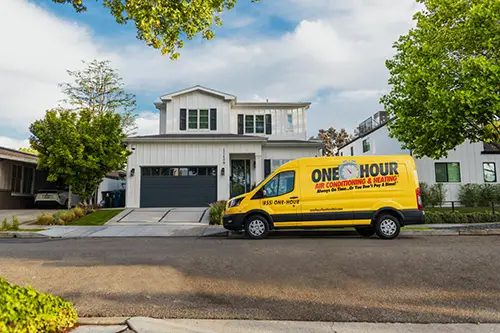 Choosing the Perfect New Heater For Your Home
Choosing the Perfect New Heater For Your Home
Choosing a new heater for your home can feel overwhelming if you don’t know what to look for. The right heater keeps your home warm and comfortable during colder months while saving you money in the long term.
However, not all heaters are created equally and depending on your needs, the wrong choice could leave you with higher energy bills and a home less efficient than you imagined.
Below, we’ll explore everything homeowners need to consider to make an informed decision when choosing a new heater. From energy efficiency to the size of your space, each factor plays a key role in finding the perfect option for your household.
Energy Efficiency: The Key to Savings and Sustainability
Energy efficiency should be your top consideration when choosing a new heater. Simply put, an energy-efficient heater consumes less power to produce heat, which can save you money on utility bills over time while reducing your carbon footprint.
Look for heaters with high Annual Fuel Utilization Efficiency (AFUE) ratings for furnaces or a high-efficiency ratio (EER) for electric units. For example, a gas furnace with an AFUE rating of 90% means that 90% of the fuel is converted into heat, while only 10% is wasted. Higher ratings often indicate lower operating costs a win for both the environment and your wallet.
Additionally, check for certification labels, such as ENERGY STAR, which highlight products that meet strict energy-saving criteria. Investing in an energy-efficient model might cost more upfront, but it’s an investment that pays off in the long term.
Fuel Type and Its Impact on Costs
The fuel source for a new heater can influence both operating costs and environmental impact.
Common options include:
- Electricity: Convenient and widely available, but often costlier to operate in colder regions.
- Natural Gas: A popular choice for central heating, offering lower operating costs and consistent performance.
- Propane or Oil: Less common for new installations but sometimes used in rural areas lacking natural gas lines.
- Renewable Sources: Solar or geothermal solutions for eco-conscious homeowners looking to lower emissions.
When weighing fuel options, consider the costs of fuel in your area as well as its accessibility. If you already have natural gas lines installed, a gas heater may make more sense. On the other hand, if your region is prone to power outages, a backup generator might sway your decision toward a non-electric option.
Heater Size Matters
Just like Goldilocks searching for her perfect fit, the size of your new heater needs to be just right. A heater that’s too small won’t adequately warm your home, while an oversized unit may cycle on and off too frequently, reducing efficiency and lifespan.
To determine the right size, calculate the heating load of your home. This depends on factors like square footage, climate, window insulation, and ceiling height. Heating companies or professionals use a method called Manual J calculations to size systems accurately. It’s worth consulting an expert rather than opting for guesswork.
An appropriately sized heater won’t just keep you comfortable, it’ll also prevent wasted energy and unexpected repair costs.
Features to Match Your Lifestyle
Modern heaters come with numerous features designed to make heating more convenient and efficient. While additional features may increase the overall cost, they can also improve your experience in the long run.
Here are some you may find valuable:
- Programmable Thermostat: Allows you to preset temperatures based on your daily schedule. This ensures efficient energy use when you’re not home.
- Zoning Options: Enables you to heat specific parts of your home independently, ideal for saving energy in underused rooms.
- Smart Controls: Integrates with home automation systems, providing remote control via a smartphone app.
- Quiet Operation: Especially important for bedrooms or study areas where noise can be disruptive.
Consider which features best suit your lifestyle needs. If controlling everything from an app keeps you organized, prioritize smart heating systems.
Installation and Maintenance Costs
The price tag of a new heater isn’t the only financial factor, installation and maintenance are equally important. Some systems, like ducted central heating, require significant installation work, which can be costly. Others, such as wall-mounted space heaters, are simpler to install.
Once installed, regular maintenance prolongs the life of your heater and ensures its efficiency. For example, gas heaters need annual inspections for safe operation, while electric models may require less frequent service. Be sure to account for both initial and ongoing costs in your budget.
Reliability and Warranty
A new heater is an investment, so reliability matters. Check manufacturer reviews and look for models known for their longevity and durability. A longer warranty indicates a product built to last and offers peace of mind should repairs arise.
Imagine it’s the coldest night of winter, and your heater suddenly stops working—you’d want to know the manufacturer has your back. Opt for brands with dependable customer support and strong reputations.
Final Thoughts on Choosing the Right New Heater
Choosing the perfect new heater for your home doesn’t have to be complicated. By focusing on energy efficiency, your home’s layout, fuel type, size, and additional features, you ensure a cozy and cost-effective solution. Don’t forget to weigh installation costs and warranties as part of your decision-making process.
If you’re ready to choose your next heater, reach out to a heating specialist or trusted retailer to explore options that suit your needs. Smart choices lead to warm, comfortable homes you’ll enjoy all winter long.
